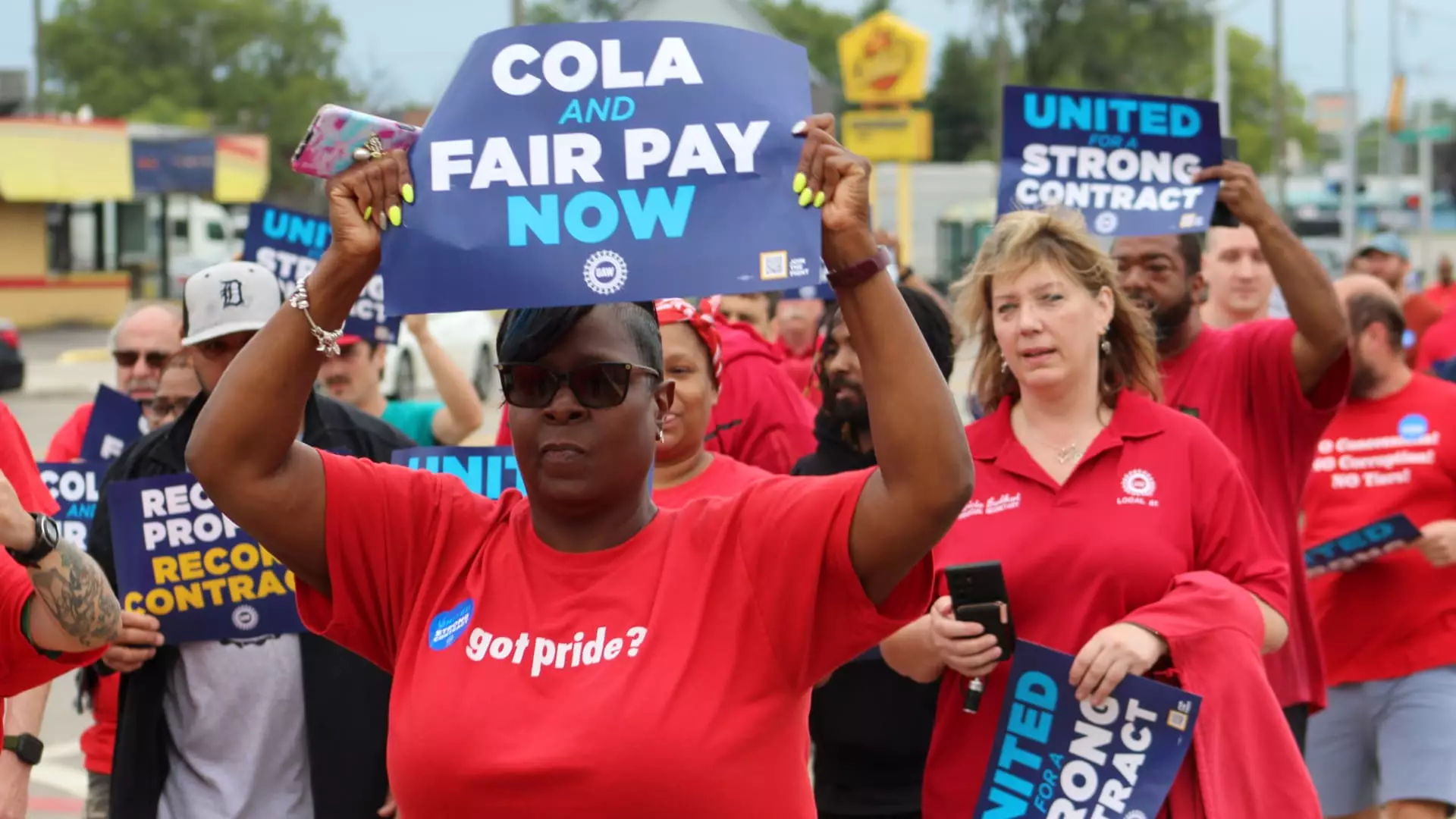The United Auto Workers (UAW) is heading towards a potential strike against Detroit automakers General Motors, Ford Motor, and Stellantis. United Auto Workers President Shawn Fain has taken a hardline approach, refusing to extend the contract deadline and threatening to take approximately 150,000 auto workers out of factories if necessary. In addition, Fain and the union have filed unfair labor practice charges against GM and Stellantis, accusing the companies of bad faith bargaining. This article delves into the likelihood of a strike and its potential impact on the automotive industry and the economy as a whole.
Unlike previous union leaders, Fain is negotiating with all three automakers simultaneously instead of selecting a single “target” company. He has been notably more confrontational, even launching personal attacks on executives during the negotiations. Some industry analysts and experts believe that a strike or multiple strikes may be necessary to demonstrate to UAW members that the union leadership fought diligently to achieve their demands. Labor professor Art Wheaton predicts that a strike at Stellantis is almost guaranteed, which could serve as a warning to GM and Ford to improve their offers.
Strikes could manifest in various forms, including a national strike where all workers under the contract stop working, or targeted work stoppages at specific plants over local contract issues. Prolonged strikes against all three automakers would be unprecedented and have immediate repercussions on the automotive supply chain, the U.S. economy, and domestic production. The Biden administration has shown a keen interest in these contract negotiations, appointing Democratic adviser Gene Sperling to monitor the situation for the White House. Wall Street investors have also expressed concerns about potential work stoppages, with 58% of investors surveyed by Morgan Stanley believing that a strike is “extremely likely.”
The imminent contract deadline follows a series of combative rhetoric from Fain and other union leaders and involves extensive labor movement with previous work stoppages. The UAW has made ambitious demands, including pay increases of 40% or more, retention of platinum healthcare, and a 32-hour workweek. These demands are usually kept confidential until the negotiations’ final stages to avoid setting unrealistic expectations for UAW members to ratify the contracts after a tentative agreement is reached. Dennis Devaney, senior counsel at Clark Hill and former NLRB board member and attorney for GM and Ford, criticized the public nature of the negotiations, stating that it may not speed up the process.
While Fain plays a crucial role in the negotiation process, the ultimate decision to call for strikes rests with the UAW’s 14-member International Executive Board (IEB). The IEB must approve any potential work stoppages by a two-thirds majority vote, based on weighted votes. Another critical factor to consider is the duration of the strike. Morgan Stanley’s survey reveals that 96% of respondents expect a potential strike to last longer than a week, with 34% anticipating a strike duration of over a month. GM’s 2019 strike, which lasted 40 days, cost the automaker $3.6 billion in earnings.
The UAW has a strike fund of over $825 million, which is utilized to pay eligible members during strikes. Strike pay amounts to $500 per week for each member, which would cost the union around $75 million per week, assuming 150,000 UAW members covered by the contracts. Nevertheless, this amount does not include healthcare costs such as temporary COBRA plans, which can quickly deplete the fund. Historically, UAW members usually accepted the deals endorsed by union leaders. However, in recent negotiations, deals have been voted down, leading to a return to the negotiating table. Once a tentative agreement is reached, members vote by local organization on whether to accept the agreement and transform it into a contract.
The United Auto Workers’ contract negotiations with General Motors, Ford Motor, and Stellantis have reached a critical point, with the possibility of a strike looming. United Auto Workers President Shawn Fain’s no-nonsense approach and his refusal to extend the contract deadline indicate an increasing likelihood of work stoppages. The impact of these strikes would be significant, affecting the automotive supply chain, the U.S. economy, and domestic production. The Biden administration is closely monitoring the situation, and Wall Street investors foresee a strike as increasingly probable. The decisions made in the coming days and weeks will shape the future of the UAW and its relationship with Detroit’s automakers.


Leave a Reply